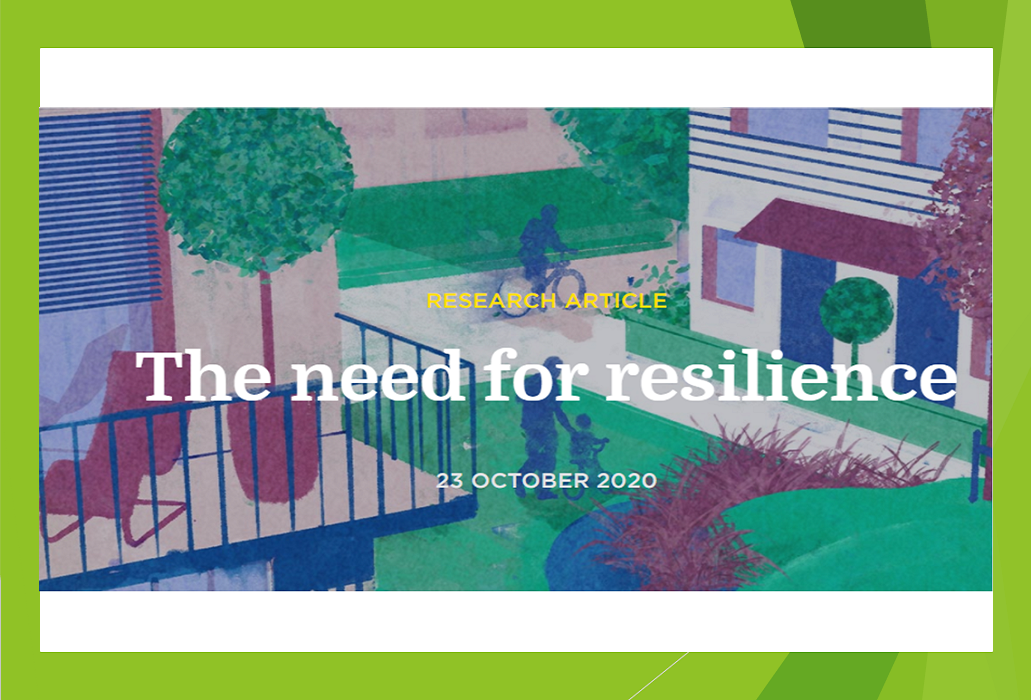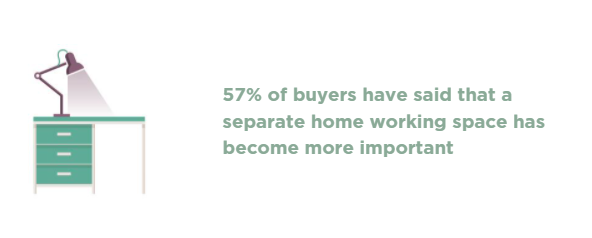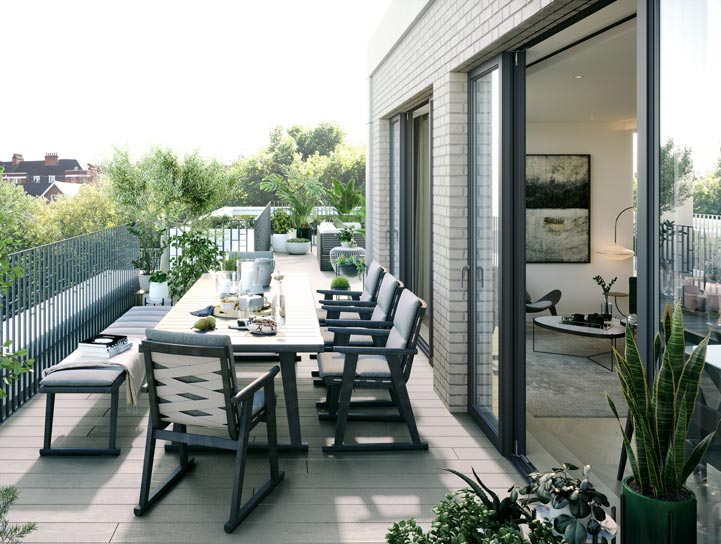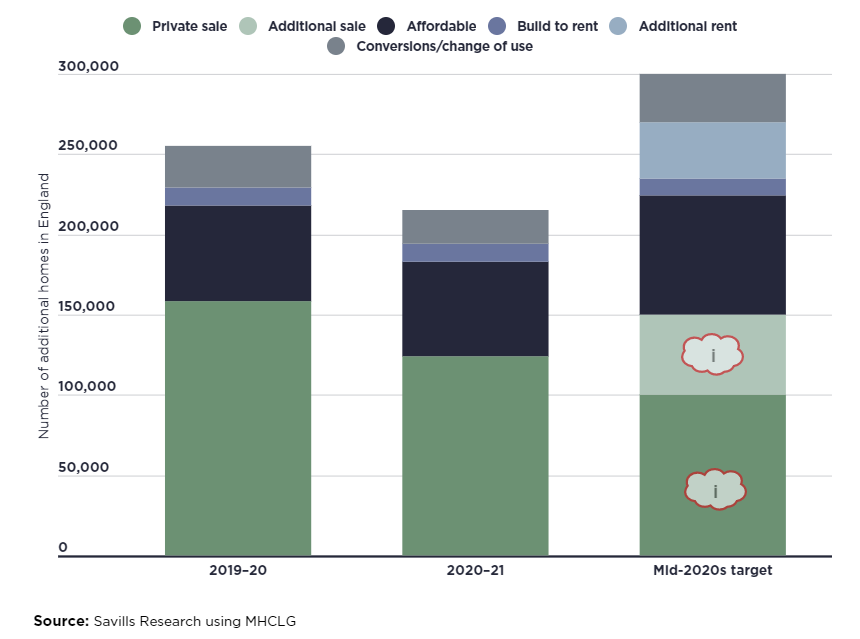The end of Help to Buy
Before the lockdown, the new build sales market had been performing more strongly than the second-hand market, mostly thanks to Help to Buy. In 2019, 15% of all sales were new homes, compared with just 10% in the period 2010–2012. The Help to Buy scheme has allowed many people to get on to the housing ladder who otherwise wouldn’t have been able to or for buyers to purchase a bigger property, taking two steps up the ladder in one acquisition.
However, as Help to Buy in England becomes more restricted from next year and is scheduled to end in 2023, the new build market will be back on a level playing field with the second-hand market, unless other financial support for buying new homes is available. Building homes to suit the changing buyer preferences and broadening the offer and target market for new build are therefore opportunities to support sales (The right homes for different people).
Meeting housing targets
Housing supply has been significantly disrupted by Covid-19, and we estimate that 17% fewer homes will be built in the 12 months to March 2021 than last year. However, with starts of new sites running at around 47% of pre-Covid levels, there is a significant risk to delivery in 2021–2022 unless builders gain more confidence.
To reach the target of delivering 300,000 homes in England by the mid-2020s and the number of homes needed in Scotland and Wales, delivery of all tenures will need to increase. The new build market share of the sales market will need to avoid falling back to pre-Help to Buy levels of 10%. And enabling the build to rent sector to expand will be essential.
Delivering this volume of homes will require diversity in construction, such as greater use of modern methods of construction (a less labour-intensive way of building homes). This will be needed because of the existing skills shortfall and potential for fewer construction workers from outside the UK in the future due to Brexit.
Housing supply in England to meet targets, delivery of all tenures will need to increase



